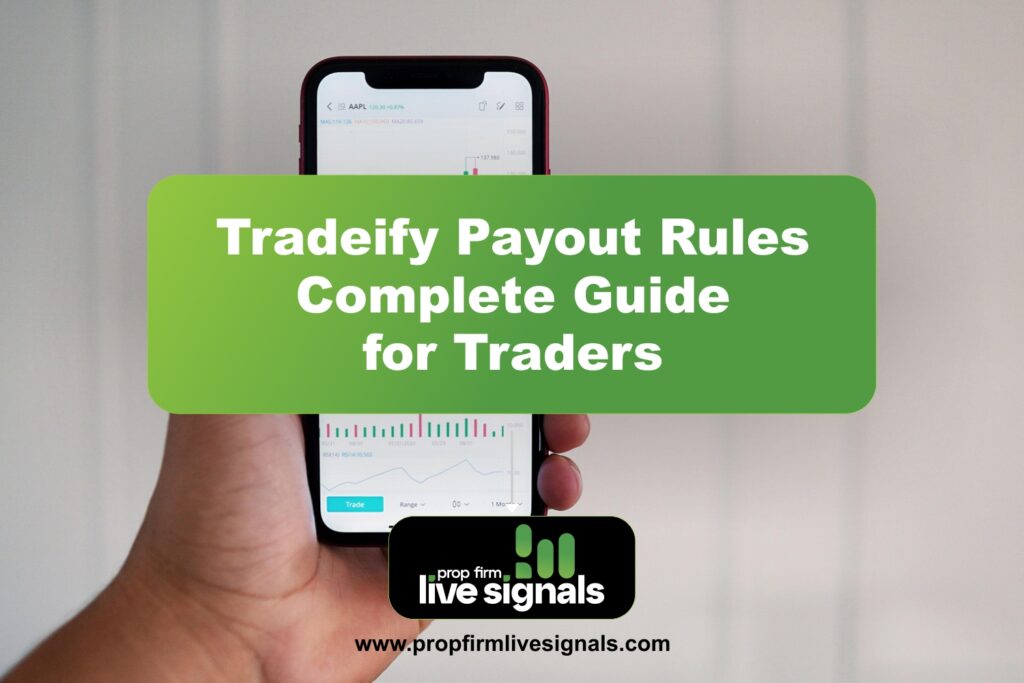The complexities of proprietary trading firms that support HFT methods, the advantages and difficulties of this trading approach, and how traders can effectively negotiate prop firm evaluations while utilizing HFT will all be covered in this article.
Understanding High-Frequency Trading
High-frequency trading is referred to as the employment of advanced algorithms and technology to profit from minute price changes across several marketplaces. In order to obtain a competitive advantage, traders that use HFT tactics usually complete hundreds of orders in a matter of seconds. This approach includes a number of essential elements:
- Market Making: This tactic entails putting buy and sell orders to increase market liquidity and make money off of the difference between them.
- Arbitrage: To lock in profits, traders execute simultaneous trades, taking advantage of price differences between several marketplaces or instruments.
- Trend Following: The goal of this strategy is to spot and profit from transient price trends.
To engage effectively in HFT, traders must invest in advanced technology, including direct market access and low-latency trading platforms. Consequently, proprietary trading firms that support HFT often provide traders with cutting edge tools and infrastructure necessary for success.
The Role of Proprietary Trading Firms
Proprietary trading firms provide traders with the unique opportunity to use the firm’s capital to execute a trade. This generally provides the trader with a minimal financial risk while offering the potential for very high returns. Remember, not all prop firms are alike, and each may have different rules with respect to the type of trading that can be used; this would include high-frequency trading.
Key Features of Prop Firms Supporting HFT
Considering the prop firm for high-frequency trading, several critical factors should be given due consideration:
- Trading Policies: Some firms explicitly permit HFT during both stages of evaluation and funding, while some other firms may actually restrict this. In fact, firms like FunderPro and OspreyFX pride themselves on being very supportive of HFT strategies, offering good profit-sharing deals and advanced trading tools.
- Profit Sharing: The retention of a high percentage of profits is critical for a trader. Some firms go as high as 70% to 90% in profit splits, wherein more often than not, it would affect the earnings of the trader.
- Technology and Infrastructure: Low latency connection and advanced trading tools are essential in delivering swift trading. Firms that consider technology first give their traders the competencies they need to compete and navigate through busy markets.
- Evaluation Process: It is important to understand how a firm screens their traders. Some firms have very good, difficult assessments to test the trader’s ability to handle risk and execute trading in a pressure situation effectively.
Top Prop Firms Allowing High-Frequency Trading
Several proprietary trading firms stand out for their commitment to supporting high-frequency trading strategies:
| Firm Name | HFT Duration Evaluation | HFT During Funded Status | Profit Split |
|---|---|---|---|
| FunderPro | Yes | Yes | Up to 90% |
| Kortana FX | Yes | Yes | Up to 100% |
| Optimal Traders | Yes | Yes | Varies |
| OspreyFX | Yes | Yes | Up to 85% |
| Tower Research | Yes | Yes | Varies |
These firms not only allow high-frequency trading but also provide an environment conducive to developing successful trading strategies.
The Prop Firm Evaluation Process
Its evaluation process is overwhelming for any proprietary trading firm, and most especially for those who wish to apply high-frequency trading strategies. Here’s how traders can approach this challenge:
1. Preparing for Evaluation
- Understand Firm Policies: Prior to submission, read through the firm’s policies concerning high-frequency trading. Make sure your strategy is appropriate according to their guidelines.
- Develop a Robust Trading Strategy: There should be a well-defined strategy that is specifically fit for high-frequency trading. Concentrate on devising algorithms that can respond quickly to market fluctuations while managing risks with efficiency.
- Practice on Demo Trading: You can also use demo accounts or paper trading platforms to perfect your strategy at no cost. This will assist you in finding out the weak links before going into live market contact.
2. During Evaluation
- Risk Management Rules: Almost all prop firms have a lot of rules regarding the evaluation phase in terms of risk management. Make sure that you are risking exactly as much as you are allowed per trade and position size is uniform.
- Discipline: High-frequency trading is exciting but demands discipline and focus. Stick to your strategy and avoid emotional decision-making during evaluations.
- Communicate with Firm Representatives: Reach out to representatives of the firm for clarification on any specific strategy or policy that you don’t feel comfortable with.
3. After Passing Evaluation
Once you finally pass and receive funding from the prop firm, remaining consistent is crucial to your success:
- Monitor Performance Regularly: Continuously monitor performance regularly by tracking your trades and analyzing your performance metrics to see how you can do better.
- Adapt Strategies as Needed: Markets continuously change, which means you have to be quite flexible and ready to immediately adjust your strategies if you want to achieve long-term success.
- Trading Community: Many prop firms strive to create a community among their traders. Engagement with peers will often offer valuable insights into better ways to approach your trading journey.
Benefits of Trading with Prop Firms
There are several advantages of trading with proprietary firms that can enhance the experience a trader gets:
- Access to Capital: Traders can leverage the firm’s capital, allowing them to take larger positions without risking personal funds.
- Reduced Financial Risk: By using the firm’s money, traders can limit their financial exposure while still participating in potentially lucrative markets.
- Advanced Technology: Prop firms often provide access to sophisticated tools and platforms designed specifically for high-frequency trading.
- Supportive Environment: Many firms provide training resources, mentorship programs, and other collaborative opportunities to help traders develop their skill.
Challenges Associated with High-Frequency Trading
Along with some amazing benefits, this style of trading also presents some challenges:
- High Competition: The execution speed means competition among those using similar strategies is very aggressive.
- Technological Dependence: Heavy dependence on technology magnifies the impact of technical failures or down times.
- Regulatory Scrutiny: HFT has repeatedly come under regulatory scrutiny due to perceived situations of market manipulation and volatility.
- Emotional Stress: HFT work may be carried out in a very fast tempo; this may increase stress levels. Keeping calm is part of the job.
Want to take your trading to the next level?
Take advantage of our LiveSignals, your go to resource for dependable, real-time trading signals, you can eliminate uncertainty from trading.
Propfirmlivesignals is the answer to your constant success in the markets!
You will always be on top of your game with expert analysis and real-time updates. Never let this chance slip away to supercharge your trading journey.
More Info Click here.
Frequently Asked Questions (FAQs)
What kind of technology do I need for high-frequency trading?
For successful high-frequency trading, you typically need:
- A low-latency trading platform that provides direct market access.
- Advanced algorithms capable of executing trades quickly.
- Reliable internet connectivity and hardware that can handle rapid data processing.
How can I improve my chances of success in high-frequency trading?
To enhance your chances of success in HFT:
- Continuously refine your algorithms based on performance data.
- Stay informed about market trends and technological advancements.
- Engage with other traders for insights and strategies.
- Maintain strict discipline and risk management practices.
How do I choose the right proprietary trading firm for my needs?
When selecting a prop firm, consider factors such as:
- The firm’s policies regarding high-frequency trading.
- Profit-sharing arrangements and fee structures.
- The quality of technology and support provided.
- The firm’s reputation within the trader community.
What is a proprietary trading firm?
- A prop firm is a financial entity using its capital for trading in financial markets. These firms hire traders to execute trades on behalf of the firm, which allows traders to use the firm’s capital while sharing profits from successful trades.
Are all the prop firms allowing high-frequency trading?
- No, not all prop firms allow high-frequency trading. Each has its own rules on trading strategies. You need to research and go with a prop firm that clearly allows HFT if that is your style of trading.
Can I use my own trading algorithms at a prop firm?
- Many proprietary trading firms allow their traders to use their own algorithms, particularly if they facilitate high-frequency trading strategies. This would, however, need to be confirmed during the application process as it varies from firm to firm.
Are There Any Specific Markets Better Suited for High-Frequency Trading?
- While HFT could be applied across various markets, its use is more common in highly liquid markets like equities, forex, and futures markets. These are ideal environments for fast trades, given their volume and volatility.
Is high-frequency trading appropriate for beginners?
- It is usually not advisable for beginners to delve into high-frequency trading because of the intricacy involved and the need for advanced technology and algorithms. Beginners might want to try their hand at more traditional approaches before jumping into HFT with experience.
Can I trade part-time while using a prop firm?
- Many proprietary trading firms allow traders to operate part-time; however, this may depend on the firm’s policies and your specific role within their structure. It’s advisable to clarify this during your application process.


